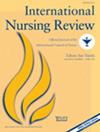Enhancing Work Efficiency With Generative Artificial Intelligence: Experience and Training Insights From School Nurses Through Focus Groups and Surveys
Abstract
Aim
This study examined the use of generative artificial intelligence (GAI), factors related to its application, and training expectations among school nurses who enrolled as seed instructors in a GAI training program.
Background
GAI, such as ChatGPT, is reshaping professional environments by simulating human-like interactions. Enhancing user proficiency and reducing the risk of misuse is essential for practical applications.
Methods
This study employed an explanatory sequential mixed-methods design using a purposive sample of 45 school nurses from primary, secondary, and higher education institutions in Taiwan. An online survey assessed attitudes and behaviors related to GAI, followed by six 90-minute focus groups that explored practical use and training needs.
Findings
The survey confirmed the universal adoption of ChatGPT among participants, primarily for information retrieval. Perceived usefulness emerged as a key factor affecting workplace integration. Focus group discussions, guided by quantitative insights, highlighted ChatGPT's role in enhancing work efficiency through personalized educational materials, content creation, and summarization. Concerns included accuracy, ethical risks, and privacy. Participants expected improvements in workflow automation, statistical capabilities, and prompting to optimize AI integration in nursing tasks. However, misaligned expectations regarding automation and statistical capabilities were evident. These findings underscore the need for effective prompting, reliable information retrieval, and targeted AI training to support workplace adoption and critical evaluation.
Conclusion
ChatGPT was mainly used as a GAI tool for health education and content creation. It was valued for its personalized support but raised concerns about accuracy. Perceived usefulness significantly influenced its use, and participants sought training to improve their prompting skills.
Implications for nursing practice and health policy
Future AI training should integrate ethical principles alongside practical applications to minimize misuse, particularly in nursing. Specialized GAI training for nurses should emphasize hands-on application exercises to enhance task-specific efficiency and meet the evolving demands of healthcare.

 求助内容:
求助内容: 应助结果提醒方式:
应助结果提醒方式:


